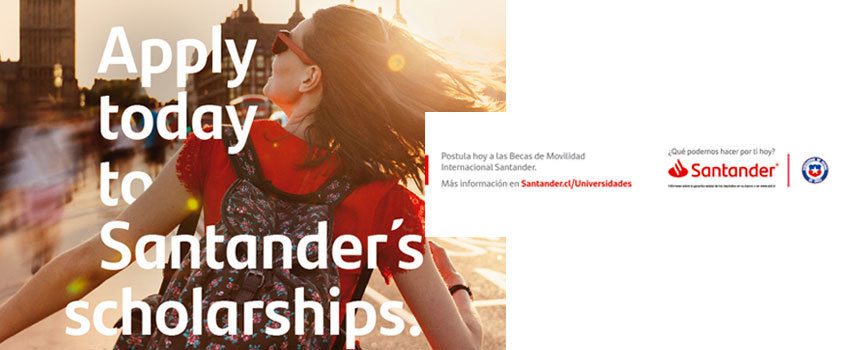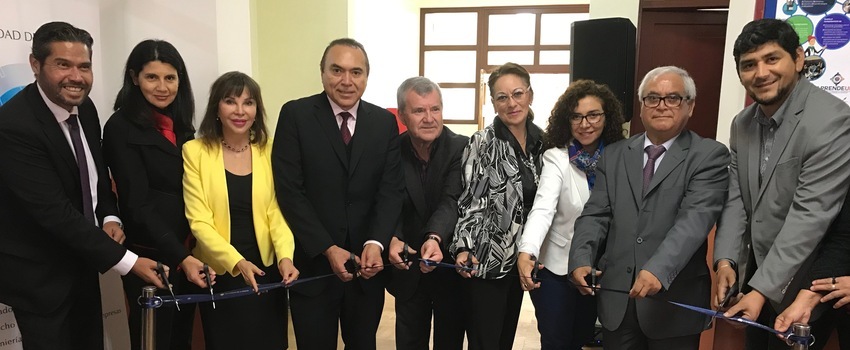
Within the framework of the nineteenth anniversary of the Faculty, the inauguration ceremony of the FACSE Executive Hall and offices of the Department of Economics and Business Sciences was held, works carried out in the execution of the framework agreement for state universities ULS 1756.
The solemn ceremony was held in the presence of the Rector of the University, Dr. Nibaldo Avilés Pizarro, the Dean of the Faculty of Social and Economic Sciences, Dr. Luperfina Rojas Escobar, the Director of the Department of Economics and Business Sciences, Mg. Alberto Hernández Venegas, among other authorities and special guests.
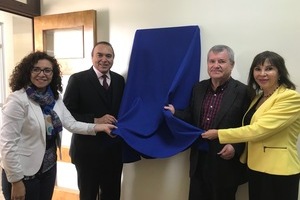 The inauguration had a high participation of directors of schools and courses of the Faculty and academics, who were grateful for the efforts at the infrastructure level that the campus has developed in favor of an environment that encourages ideal work towards an education of excellence. at all levels.
The inauguration had a high participation of directors of schools and courses of the Faculty and academics, who were grateful for the efforts at the infrastructure level that the campus has developed in favor of an environment that encourages ideal work towards an education of excellence. at all levels.
The Dean of FACSE, Dr. Luperfina Rojas, stressed the value of the efforts to establish real improvements at the Enrique Molina Garmendia Campus, a place that is often affected by inclement weather and challenges of the terrain itself, adding that “we have improved our quality at all levels, in infrastructure and quality, this is reflected with the increase in enrollment.”
Likewise, he referred to the collective work carried out by the Faculty, indicating that “thanks to everyone, we are on the right path, we are seeing the fruits, we are developing research, teaching and links with the environment. “We are working in a coordinated and joint manner.”
The project to expand the offices of the Faculty of Social and Economic Sciences of the Enrique Molina Garmendia Campus is generated within the framework of the continuity of projects in the process of construction and evaluation of infrastructure in relation to the academic needs of the institution.
For the Director of the Department of Economics and Business Sciences, Mg. Alberto Hernández, this new space will allow us to better respond to academic requirements. “We thank the University for the efforts that have been made to improve this campus and bring it to high standards,” he said.
In total there are ten new offices plus an executive room, which will allow the Faculty of Social and Economic Sciences to have a space conducive to academic development in order to be part of the comprehensive improvements promoted by the institution.
Written by Paula Godoy, ULS Journalist

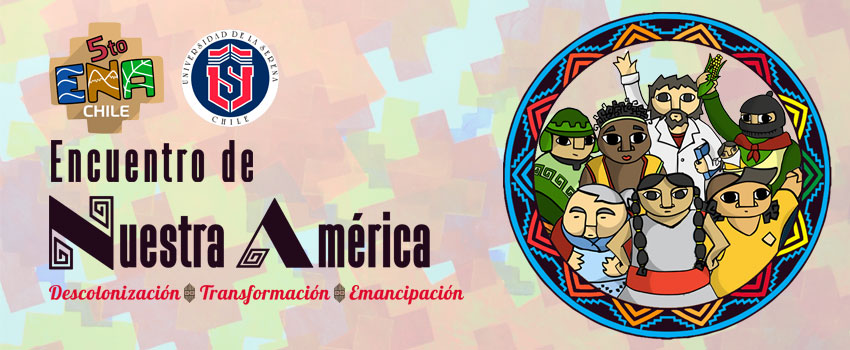
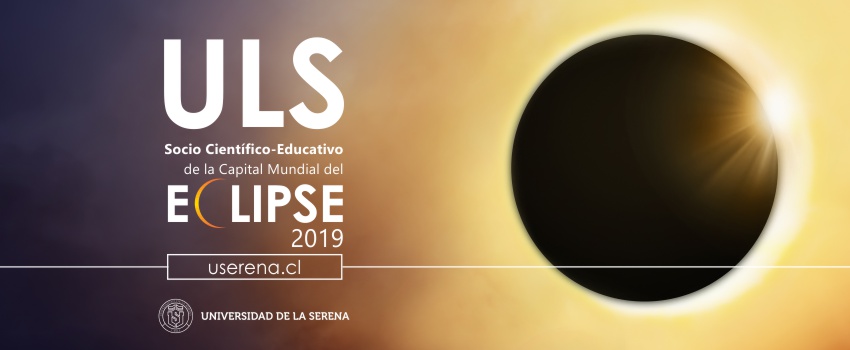



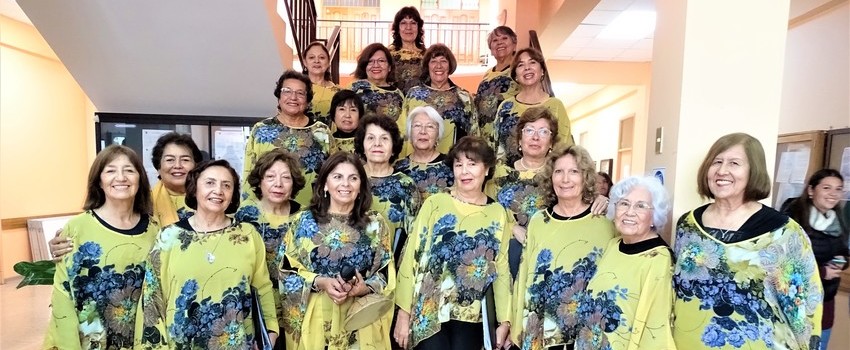
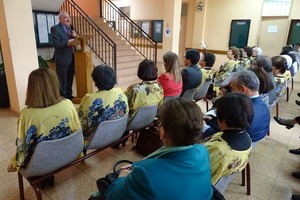 With great joy and emotion, the normalista teachers remember those years in which they had the mission of training hundreds of boys and girls, since they were not only in charge of delivering academic knowledge, but also had the laborious task of educating them personally. “It is wonderful to have been a normal teacher, because we were given the guidelines to fight in life and educate children. We had to do everything, we had to turn on the kitchen to prepare milk for breakfast, some of us even had to go to the hill to look for firewood or carry water,” remembers Lorenza Peralta, who joined in 61 and worked in her profession. for 42 years.
With great joy and emotion, the normalista teachers remember those years in which they had the mission of training hundreds of boys and girls, since they were not only in charge of delivering academic knowledge, but also had the laborious task of educating them personally. “It is wonderful to have been a normal teacher, because we were given the guidelines to fight in life and educate children. We had to do everything, we had to turn on the kitchen to prepare milk for breakfast, some of us even had to go to the hill to look for firewood or carry water,” remembers Lorenza Peralta, who joined in 61 and worked in her profession. for 42 years.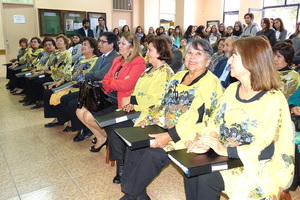 Without a doubt, the changes that have occurred in the way of learning and teaching today are great, and that is why normal school teachers urge current generations to practice the profession above all with love, vocation and responsibility. “Now you have to have a lot of sensitivity and psychology to act with children, because life has changed and it has been much more difficult for them than for us, since we were authorities in the towns and very respected. That's why you have to be patient,” Lorenza advised.
Without a doubt, the changes that have occurred in the way of learning and teaching today are great, and that is why normal school teachers urge current generations to practice the profession above all with love, vocation and responsibility. “Now you have to have a lot of sensitivity and psychology to act with children, because life has changed and it has been much more difficult for them than for us, since we were authorities in the towns and very respected. That's why you have to be patient,” Lorenza advised.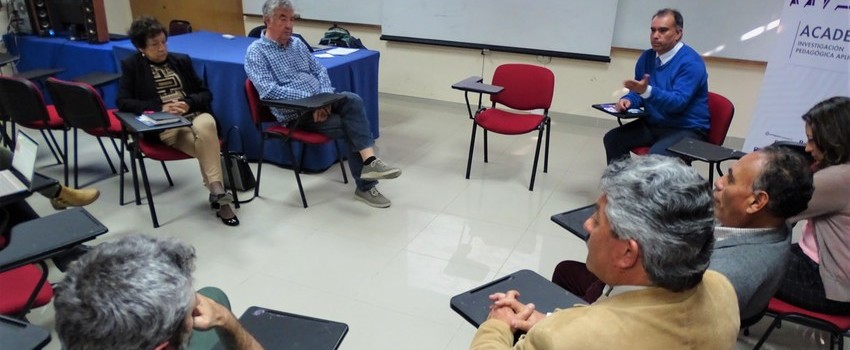
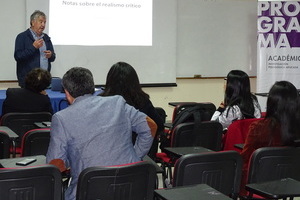 “In general, the social sciences present a research deficit, particularly in the area of education. For this reason, the UGIP formed the Pedagogical Research Center in the Initial Training of Teachers, for the benefit of our knowledge and educational practices, and which we hope will grow and be incorporated into the teaching-learning processes of the institution's pedagogy careers. said Dr. Fabián Araya, Alternate Executive Director of the UGIP.
“In general, the social sciences present a research deficit, particularly in the area of education. For this reason, the UGIP formed the Pedagogical Research Center in the Initial Training of Teachers, for the benefit of our knowledge and educational practices, and which we hope will grow and be incorporated into the teaching-learning processes of the institution's pedagogy careers. said Dr. Fabián Araya, Alternate Executive Director of the UGIP.